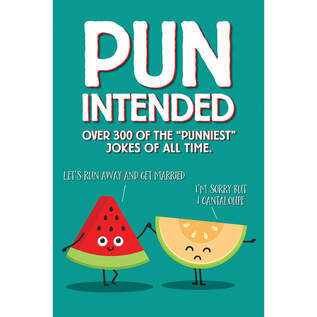Pun
 The word pun first appears in English in the 1660s. The verb ‘to pun’ or ‘to make puns’ is also from the 1660s. The origins of the word pun are uncertain.
The word pun first appears in English in the 1660s. The verb ‘to pun’ or ‘to make puns’ is also from the 1660s. The origins of the word pun are uncertain.Briefly, a pun is defined as a word used in two different applications or the use of two different words pronounced alike or nearly alike to produce an odd, silly, or ludicrous idea. For example, someone told me about growing maize the other day. It was amazing—the corniest thing I’d heard in quite a while.
Comparatively speaking, English, as spoken today, is a very young language and took its present form only five or six hundred years ago thanks to the likes of Gutenberg, Shakespeare, and the KJV Bible. During the 16th and 17th centuries, as more and more people became literate, they enjoyed playing with this new form of the language.
The Online Etymological Dictionary states,
“At the revival of learning, and the spread of what we may term the refinement of society, punning was one of the few accomplishments at which the fine ladies and gentlemen aimed… [by] the sixteenth century, it was at its greatest height. The conversation of the witty gallants, and ladies, and even of the clowns and other inferior characters, in the comedies of Shakespeare and his contemporaries, which we may be sure was painted from the life, is full of puns and plays upon words. [Larwood & Hotten, "The History of Signboards from the Earliest Times to the Present Day," London, 1867].”
In those days there was a theatre performance about puns that was a play on words.
These days, puns may seem like low-brow groaner or dad-joke humor, but they still have a sense of this late medieval hoity-toity about them. “See what I can do with the language, ha ha ha!” I used to hate puns but they’ve groan on me.
Finally, a good pun is its own re-word.
Reference: Online Etymological Dictionary, https://www.etymonline.com/
Published on January 16, 2023 19:07
No comments have been added yet.



